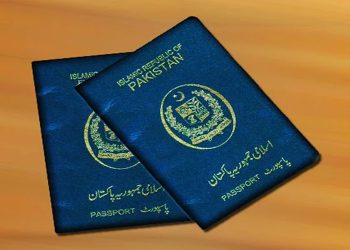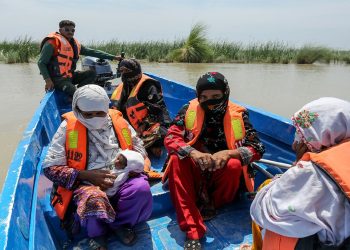What is happening in the Indian administered Kashmir, would not have happened at all, if National Conference (NC) leader Sheikh Mohammad Abdullah had not volunteered a good behaviour reference in favour of Indian Security Forces, during his speech at the UN Security Council on 5 February 1948 and People’s Democratic Party (PDP) leader Mufti Mohammad Sayeed had not entered into an alliance with BJP on 01 March 2015 to form a Government.
National Conference legitimised the foothold of Indian army and PDP helped BJP to have a share in the Government, for the first time in the history of Kashmir.Indian politicians played their cards with no holds barred and betrayed Sheikh Abdullah and Mufti Sayeed.
The advisory issued on Friday 2 August 2019 by the State Government (IAK), asking the Yatris (Hindu pilgrims to Amarnath) and tourists to leave the State, has been followed upon by advisories from United Kingdom, Germany and Australia, asking their citizens to “remain vigilant,” “avoid travel to Kashmir” and “to seek advice before travelling to the state of J&K”.
An unusual army build up has caused unease and scare at all levels of life. Kashmiri leadership is seen running helter skelter and are trying to cobble together a defiance. Time will tell whether the public posture maintained by these political parties is genuine or not.
The rumour is that Government of India may succeed to disturb article 35A and article 370 in the Indian Constitution. Would it be possible? The answer is no.
There are Kashmiri leaders operating in Azad Kashmir, Pakistan and in the Diaspora. They have an important role to play. Azad Kashmir Government shall have to break free from its sit back attitude and passing of the buck
Indian pride has been seriously hurt by the June 2018 and July 2019 UN reports on Kashmir. A third report by UN Secretary General released on 30 July 2019 on “Children and Armed Conflict” has driven Government of India mad. It has shown an annoyance on a reference to Kashmir. New Delhi needs to admit that legitimacy to govern any people, rests on the free consent of the people. India does not have the consent of the people of Kashmir. A surge in the number of Indian security forces is no answer, to public dissent.
State Subject Laws in Kashmir are Kashmir specific and date back to 20 April 1927 and 27 June 1932. The State Autonomy Committee Report published in July 2000, has found that “Accession of Jammu and Kashmir State was limited only to the areas of Defence, External Affairs and Communication” and that unlike other States “Jammu and Kashmir has not signed any instrument of merger” with India. The UN Security Council Resolution of 30 March 1951 has reminded India “that the final disposition of the State of Jammu and Kashmir will be made in accordance with the will of the people expressed through the democratic method of a free and impartial plebiscite conducted under the auspices of the United Nations”.
The 92 year old Kashmir specific laws, the UN Resolution of 30 March 1951, the State Autonomy Committee Report of July 2000 and the August 1947 State’s Stand Still Agreement with Pakistan all create a jurisprudence, which disables the jurisdiction of the Supreme Court of India in regards to the people and habitat of Jammu and Kashmir. On 15 January 1948 New Delhi has surrendered her accession at the UN Security Council for a UN supervised vote. Supreme Court of India may well consider Article 35A and 370, it would be a Coram non judice.
The petitioners before the Supreme Court of India are arguing an embedded question of gender discrimination in Article 35A. The issue of gender specification could be settled by the Jammu and Kashmir State legislature and not by an interference from Supreme Court of India or Indian Parliament.
UN SC Resolution of 30 March 1951, has highlighted the legal infirmity of the Assembly and Constituent Assembly of Indian Administered Kashmir. UN SC Resolution has pointed out that, “such constituent assembly and that the area from which such a constituent assembly would be elected is only a part of the whole territory of Jammu and Kashmir”. The assembly of IAK can’t award any benefit or concession to New Delhi. It does not have the competence. There are two other assemblies at Muzaffarabad and Gilgit as well.
New Delhi, its Parliament and its Supreme Court, shall have to reconcile with the jurisprudence of competence generated by these factors around Kashmir. Kashmiri leaders have started an exercise to consult each other and one can see the urgency and panic. National Conference and People’s Democratic Party have a higher burden of responsibility. The actions of their leaders have wronged the interests of the people and the merits of Kashmir case. There is no room for any further mistake.
Kashmiri leaders need to remain on the side of the people and advocate Kashmir case, in accordance with the correct jurisprudence. First and foremost demand should be demilitarization as required under UN package on Kashmir. In the interim the Indian security forces need to be brought under the two disciplines agreed on 27 October 1947 and under UN Security Council resolution of 21 April 1948. It is the need of the hour that Jammu and Kashmir Government (IAK) reinstates the ‘Entry Permit’ (Visa) requirement for Indian citizens to enter into the State. Prime Minister of Indian administered Kashmir had no authority to rescind the ‘Entry Permit’ requirement on 31March 1959.
Although Kashmir Government (from a part of the State), entered into a limited accession with Government of India on 26/27 October 1947, the ‘entry permit’ requirement for Indian citizens continued for another 12 years before it was unlawfully rescinded on 31 March 1959. If the Kashmiri leaders operating in the Indian administered Kashmir make right demands in respect of the legitimacy of Indian security forces and in terms of reinstating the ‘entry permit’, New Delhi shall have no case to argue.
Foreign Minister of Pakistan has addressed a letter to UN and Senate Chairman Sadiq Sanjrani has requested President Dr Arif Alvi to immediately summon a joint sitting of parliament to discuss the prevailing situation in Kashmir and convey a unified stance of the nation. It would be helpful if the two houses invite a Kashmiri input as well. Both are welcomes steps but not enough.
There are Kashmiri leaders operating in Azad Kashmir, Pakistan and in the Diaspora. They have an important role to play. Azad Kashmir Government shall have to break free from its sit back attitude and passing of the buck. It shall have to convene an urgent meeting inviting the various disciplines in the Government of Pakistan, Kashmir Committee, Civil Society, Kashmiri notables in Azad Kashmir and Pakistan, individuals and NGOs working for the rights of the People of Jammu and Kashmir, to consider the situation.Delhi is mistaken, Kashmir is not ice cream
The author is President of London based Jammu and Kashmir Council for Human Rights – NGO in Special Consultative Status with the United Nations




































